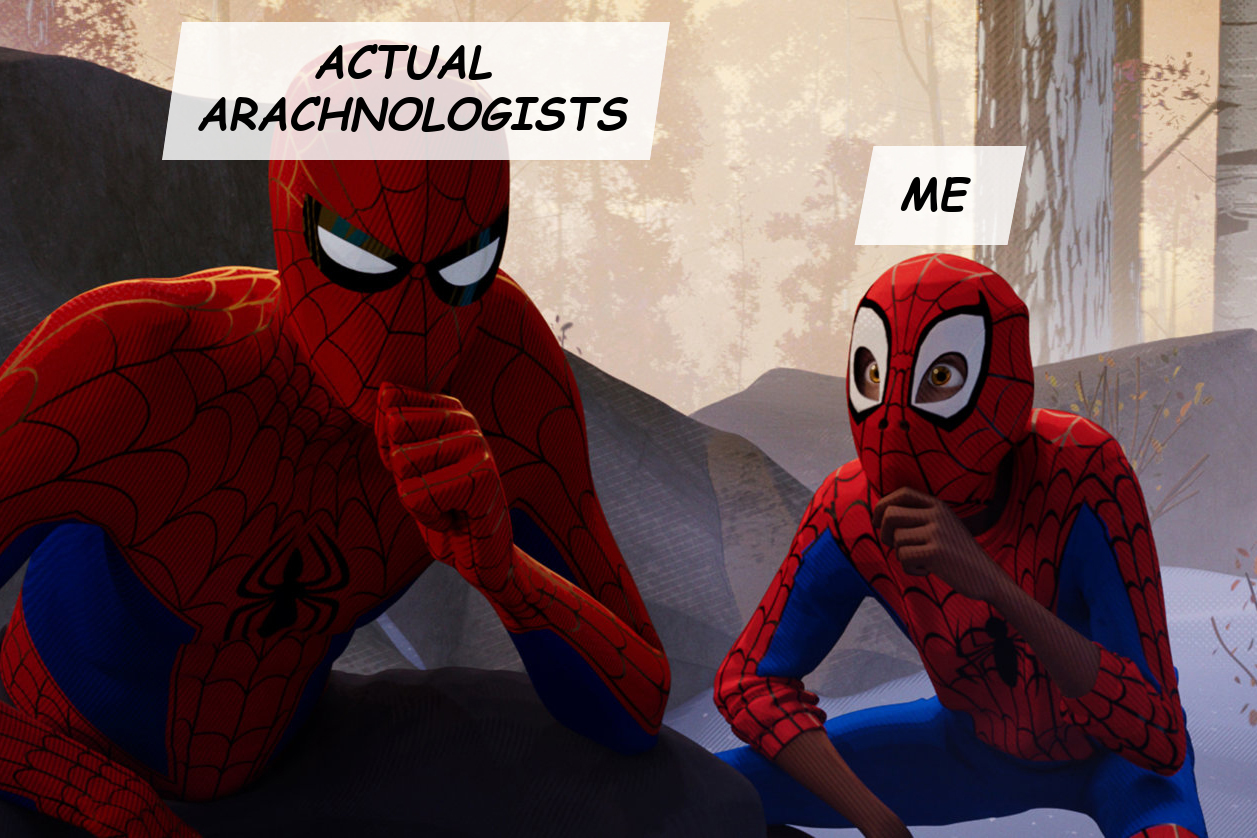Well, I’ve reached the point where people send me spider-related news articles, unprompted. So here’s a roundup of the interesting spider-related news and research that’s come my way this month.
- A new species of Loureedia, a kind of velvet spider previously only recorded in Africa and the Middle East, has been found in the deserts of southern Spain. Loureedia was named because it’s a velvet spider…that lives underground…get it?
-
Brown recluse expert Rick Vetter has a new article discussing the spider from a pest management perspective, offering insight into certain quirks that characterize brown recluse “infestations” and make them hard to eradicate. Fun quote: “The senior author misplaced 20 individually-housed female Chilean recluses in the laboratory for over a year…when rediscovered, half of them were still alive, several looking no different than spiders fed routinely.”
-
Brown widow eggs have been show to have an antibacterial coating of mysterious tiny spheres.
-
Black widows can “tune” or “filter” vibrations that they pick up through organs called slit sensilla, simply by changing their posture. (Paper.)
-
An international team of experts has carried out a sort of Bug Census, culminating in this resource on Canada’s terrestrial arthropods (i. e., bugs). This includes everything from millipedes to mayflies, and there are papers on many arachnid orders:
-
spiders, of course. Cool fact: “nearly 40% of all Canadian spider species are Linyphiidae [sheet-web and dwarf spiders]”. The paper describes how researchers have started using DNA barcoding to identify species, and says that there may be as many as 1800 different spider species in Canada.
-
mites and ticks (“At least 70% of Canada’s mite fauna is yet unrecorded.”)
-
camel spiders (yes, they do live in Canada! There are three species that live in the dry grasslands of the prairies.)
-
pseudoscorpions and scorpions—well, “scorpion”, more like, as there’s only one species. Of the tiny pseudoscorpions there are 25 species known, with at least that many more waiting to be discovered.
-
opilionids, a. k. a. “daddy-long-legs” or “harvestmen”. This group is very under-studied in general, and the authors sadly note that “[the last of the Canadian taxonomists] have retired and no one has assumed their role.”
-
-
And lastly, in just under the wire, arachnology Ph.D Sebastian Echeverri is collecting questions from the public for attendees of the upcoming International Congress of Arachnology (#Arachno19). Submit questions here!
